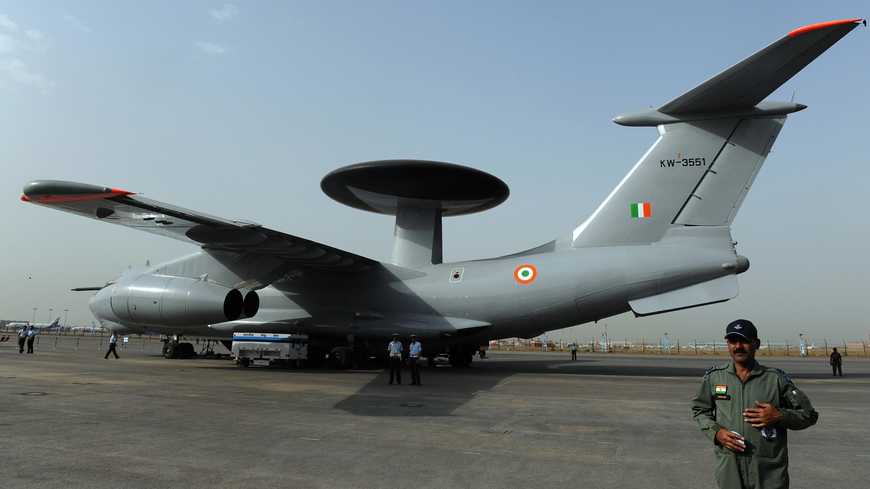
SOURCE: AL-MONITOR
Sixteen years ago, India purchased from Israel three Phalcon AWACS developed by Israel Aerospace Industries. The $1.1 billion deal was inked in 2004 and the aircraft delivered in 2009 and 2011. Next week, the Indian Cabinet is expected to approve another such deal, valued at around $1 billion.
The Israeli airborne warning and control system is mounted on Russian-origin Illyushin-76 transport aircraft. Experts call the plane an eye in the sky because of its surveillance capabilities for tracking enemy aircraft, hostile missiles, drones and troops on the ground.
The megadeal was previously derailed several times due to high costs. Now it seems that India is determined to go through with the purchase. Indian newspapers reported that the Cabinet Committee on Security is set to give its final nod to the deal after extensive inter-ministerial consultations. With tensions vis-a-vis China and Pakistan growing high, India is interested in acquiring two AWACS, to be delivered in three to four years. This would be a significant boon to Israel’s aeronautic and security industries, as Israeli defense exports were $7.2 billion in 2019, down from more than $9.3 billion in 2017.
According to the report, the top three customers of Israeli arms in the past year were India, Azerbaijan and Vietnam. In fact, for a few years now, India has been the largest buyer of Israeli military equipment, and Israel is the second-largest defense supplier to India after Russia. Israel has sold to India in recent years warships, missiles, electro-optic equipment and more.
The defense aspect is a major element in Israel-India bilateral ties, but by far not the only one. In recent years, India has been one of Israel’s top 10 trade partners.
The rapprochement between the countries has also been accompanied — some may say generated — by the rapport between the two leaders. Photos of Indian Prime Minister Narendra Modi and Israel’s Benjamin Netanyahu taking a barefoot stroll on an Israeli beach in 2017 went viral. It was the first-ever visit in Israel by an Indian prime minister. During the visit, the two leaders presented a series of agreements for cooperation on satellite technology, water and agriculture, as well as the creation of a $40 million innovation fund.
Modi’s visit was followed by a Netanyahu trip to India in 2018. This was the second visit to India by an Israeli premier since the two countries established diplomatic relations in 1992. Here, too, the two leaders exhibited especially warm relations. In a move described by the Indian Foreign Ministry as a “departure from protocol,” Modi received Netanyahu upon arrival at the Delhi airport.






